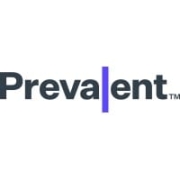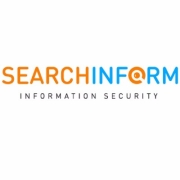IT Vendor Risk Management is essential for organizations to assess and mitigate potential risks associated with third-party vendors. It ensures compliance, security, and performance standards are maintained, protecting against potential threats from vendor relationships.
IT Vendor Risk Management involves processes and tools that help organizations evaluate third-party vendors to maintain robust risk management strategies. This category helps identify and monitor potential vulnerabilities and issues, ensuring that they do not adversely impact business operations. By implementing these practices, companies can safeguard their resources and maintain operational integrity. Maintaining clear vendor relationships based on transparency and trust can prevent both financial and reputational damage, which is crucial for sustained growth and stability in today's interconnected business environment.
What are critical features to look for?In healthcare, IT Vendor Risk Management solutions ensure vendors adhere to stringent data protection regulations. Financial sectors utilize these tools to manage extensive networks of vendors while maintaining compliance with industry requirements. Manufacturing industries leverage solutions to oversee supplier risks effectively, thereby avoiding production disruptions.
Implementing IT Vendor Risk Management helps organizations safeguard their operations from vendor-related risks. It establishes a foundation for secure and trustworthy vendor partnerships essential for organizational success in various industries.
| Product | Market Share (%) |
|---|---|
| OneTrust GRC | 8.3% |
| SecurityScorecard | 8.1% |
| RSA Archer | 8.0% |
| Other | 75.6% |



















































Vendor risk management is important because failure to appropriately acknowledge the risk vendors can potentially bring to your organization is irresponsible. An ineffective vendor could expose your organization to cyberattacks and data breaches that could potentially harm your organization’s reputation and financial standing tremendously. There are processes taking place today to make vendor risk management a requirement in the very near future.
Vendor risk management software is a type of business enterprise software that helps companies safely and securely manage the risk of vendor relationships. Although some of these solutions can be analytical, using existing data to help decision-makers identify risks and make adjustments to avoid possible threat scenarios, there are other options. Some solutions will offer audit trails, monitoring, assessment, and reporting to ensure all active parties are using their access to the organization’s data correctly and that no inappropriate activity is taking place.
IT Vendor Risk Management solutions enhance cybersecurity by identifying and mitigating risks associated with third-party vendors. These solutions continuously monitor vendor activities, assess their compliance with security standards, and ensure that any vulnerabilities are addressed in real-time. By maintaining a strong security posture, you can prevent potential data breaches and maintain the integrity of your organization’s sensitive information.
What metrics are crucial for evaluating IT Vendor Risk Management effectiveness?Key metrics include vendor risk ratings, incident response times, compliance audit scores, and the frequency of risk assessments. Analyzing these metrics helps you identify high-risk vendors, improve remediation strategies, and ensure that your vendor management program aligns with your organization's risk appetite and compliance requirements.
How can automation improve the efficiency of IT Vendor Risk Management?Automation streamlines the risk assessment process by automatically gathering vendor data, conducting risk analyses, and generating reports. It reduces manual effort, speeds up the evaluation timeframe, and minimizes human errors. Automation also facilitates real-time monitoring and alerts, enabling you to quickly respond to potential threats or changes in vendor risk profiles.
What role does continuous monitoring play in IT Vendor Risk Management?Continuous monitoring is crucial as it provides ongoing oversight of vendor activities and risk levels. It allows you to detect emerging threats, changes in vendor compliance, and potential security breaches in real-time. This proactive approach enables a swift response, helping to protect your organization's data and reputational integrity.
How does IT Vendor Risk Management support regulatory compliance?IT Vendor Risk Management ensures that vendors adhere to industry standards and regulatory requirements by conducting regular compliance assessments. It helps you document vendor compliance, automate audit trails, and maintain an accessible record of due diligence actions. This proactive documentation supports compliance with regulations such as GDPR, HIPAA, and other relevant mandates, thereby reducing legal risks.